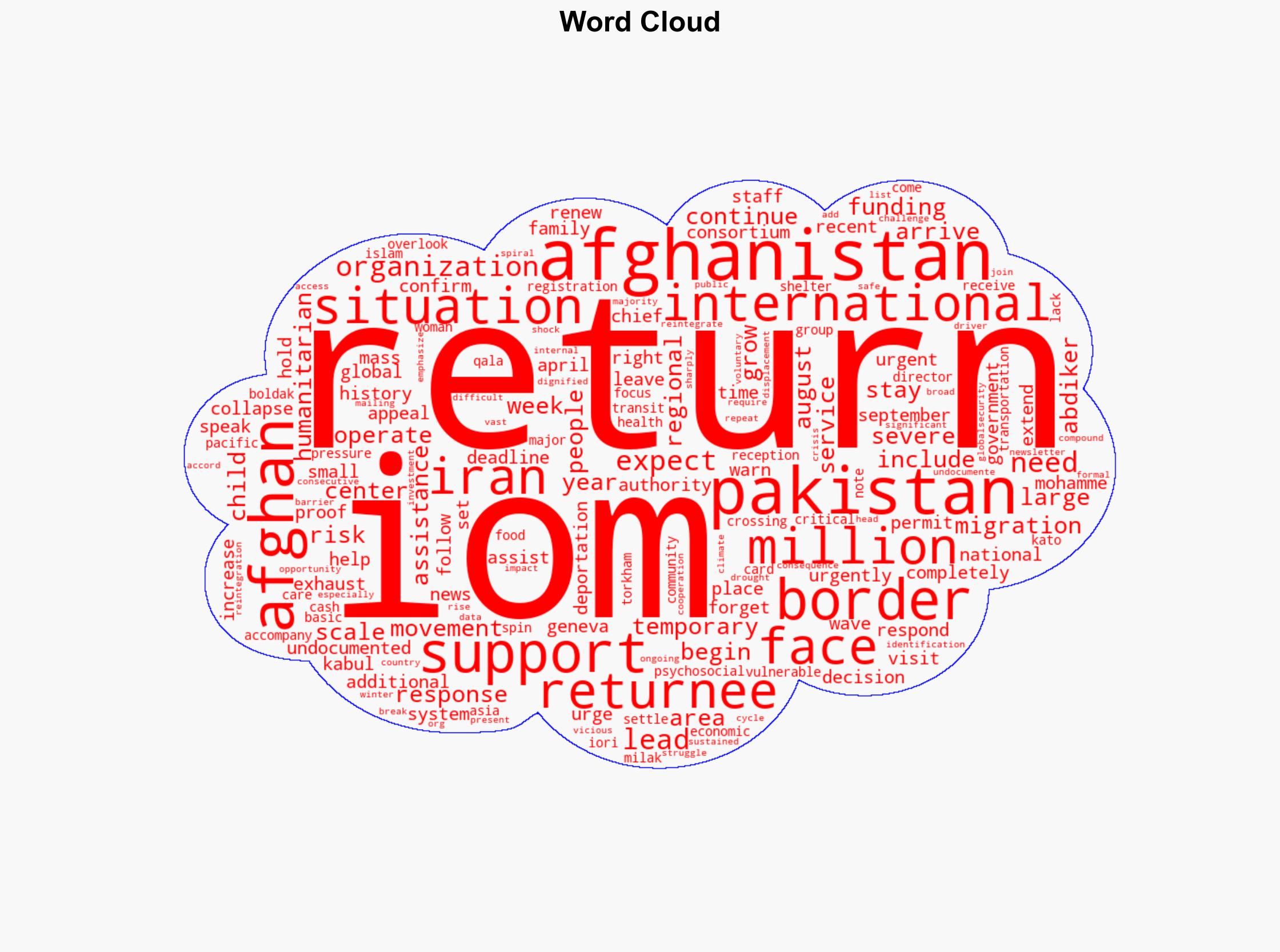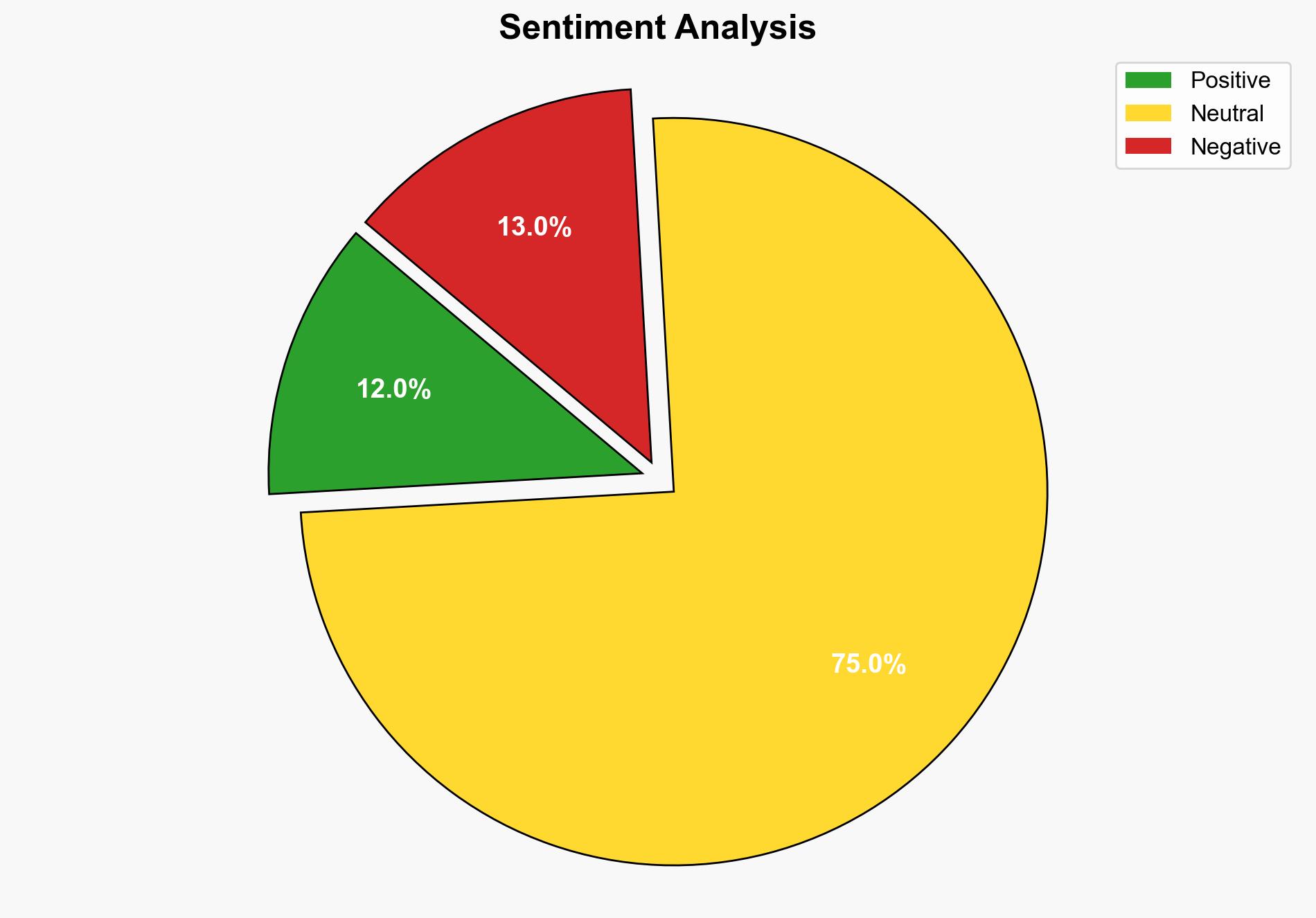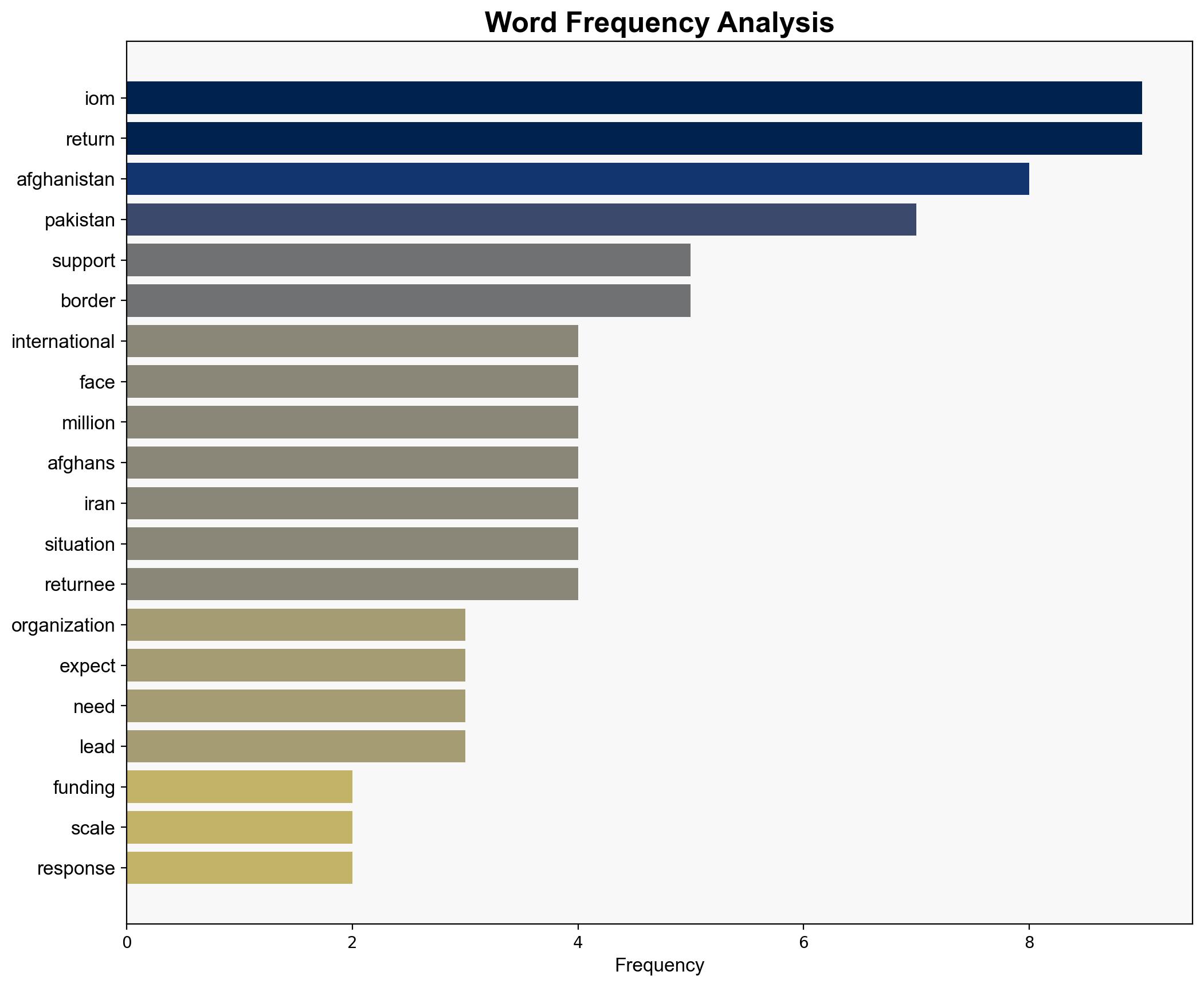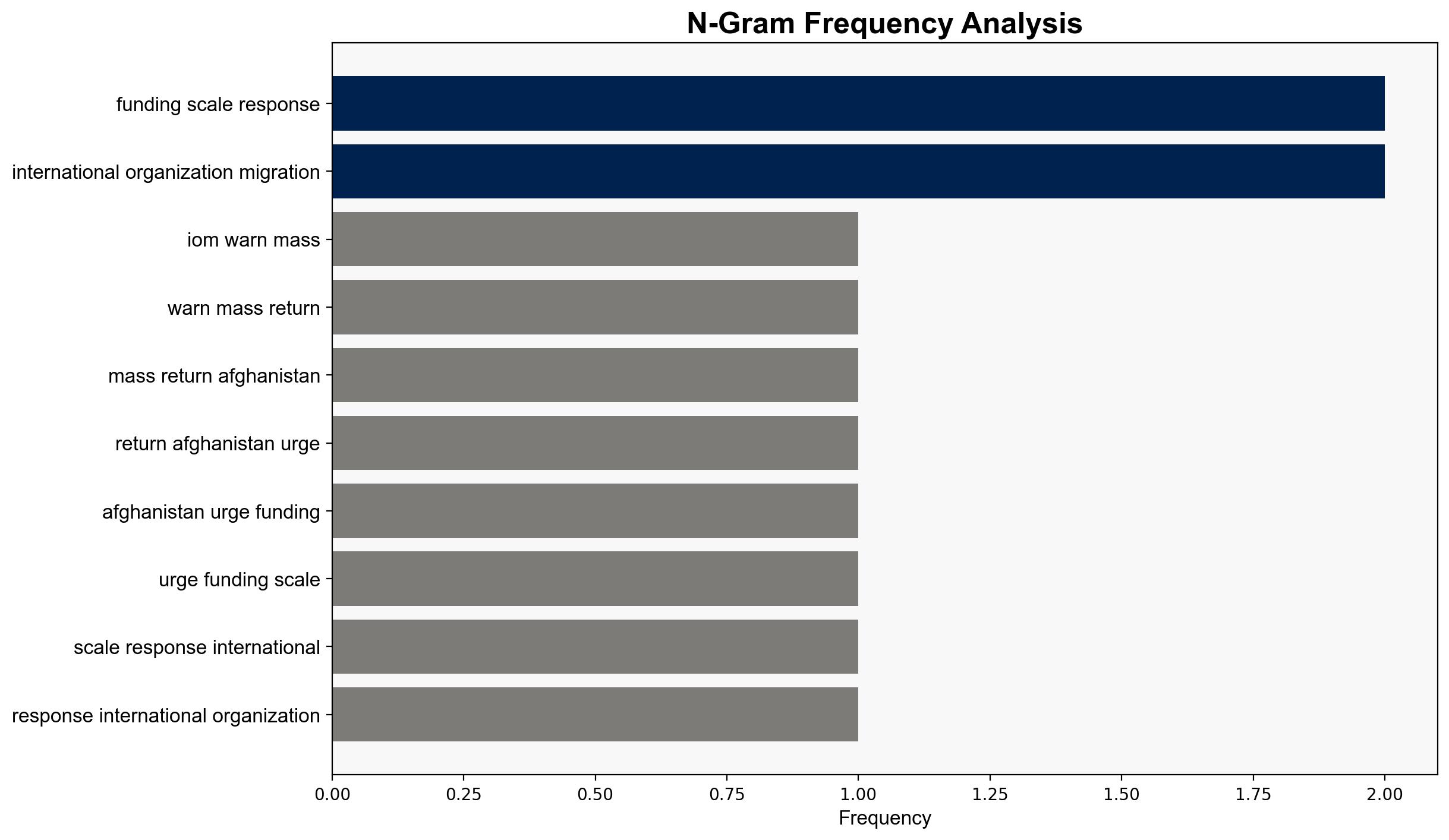IOM Warns of Mass Returns to Afghanistan Urges Immediate Funding to Scale Up Response – Globalsecurity.org
Published on: 2025-08-08
Intelligence Report: IOM Warns of Mass Returns to Afghanistan Urges Immediate Funding to Scale Up Response – Globalsecurity.org
1. BLUF (Bottom Line Up Front)
The International Organization for Migration (IOM) warns of a significant influx of Afghan returnees from Iran and Pakistan, necessitating urgent international support to prevent a humanitarian crisis. The most supported hypothesis suggests that without immediate funding and regional cooperation, Afghanistan faces severe socio-economic destabilization. Confidence Level: High. Recommended action includes mobilizing international resources and enhancing regional collaboration to manage the returnee crisis effectively.
2. Competing Hypotheses
1. **Hypothesis A**: The mass return of Afghans is primarily driven by the expiration of temporary stay permits in Pakistan and Iran’s economic pressures, leading to a humanitarian crisis in Afghanistan if not addressed with immediate international support.
2. **Hypothesis B**: The return of Afghans is part of a broader geopolitical strategy by neighboring countries to offload economic burdens and influence Afghanistan’s internal dynamics, potentially destabilizing the region further.
Using ACH 2.0, Hypothesis A is better supported due to the immediate and documented policy changes in Pakistan and Iran, as well as the IOM’s urgent call for assistance, which aligns with observed humanitarian needs.
3. Key Assumptions and Red Flags
– **Assumptions**: It is assumed that the returnees will not have adequate support upon arrival, leading to a humanitarian crisis. Another assumption is that neighboring countries’ policies are primarily economically motivated.
– **Red Flags**: The lack of detailed data on the capacity of Afghan infrastructure to absorb returnees and the potential for political manipulation of the returnee situation by regional actors.
– **Blind Spots**: Limited insight into the internal decision-making processes of Iran and Pakistan regarding Afghan nationals.
4. Implications and Strategic Risks
The mass return of Afghans could exacerbate existing socio-economic challenges, leading to increased poverty, unemployment, and potential civil unrest. This situation may also strain Afghanistan’s fragile infrastructure and public services, increasing the risk of regional instability. The humanitarian crisis could also be exploited by extremist groups to recruit disaffected individuals, posing a counter-terrorism threat.
5. Recommendations and Outlook
- Mobilize international funding and resources to support IOM’s efforts in Afghanistan.
- Enhance regional cooperation to manage the returnee influx and prevent destabilization.
- Scenario Projections:
- Best Case: Successful international intervention stabilizes the situation, with returnees integrated into Afghan society.
- Worst Case: Lack of support leads to a humanitarian disaster, increasing regional instability and security threats.
- Most Likely: Partial international support mitigates some immediate risks, but long-term challenges persist.
6. Key Individuals and Entities
– Mohammed Abdiker
– Iori Kato
7. Thematic Tags
national security threats, humanitarian crisis, regional stability, migration policy





